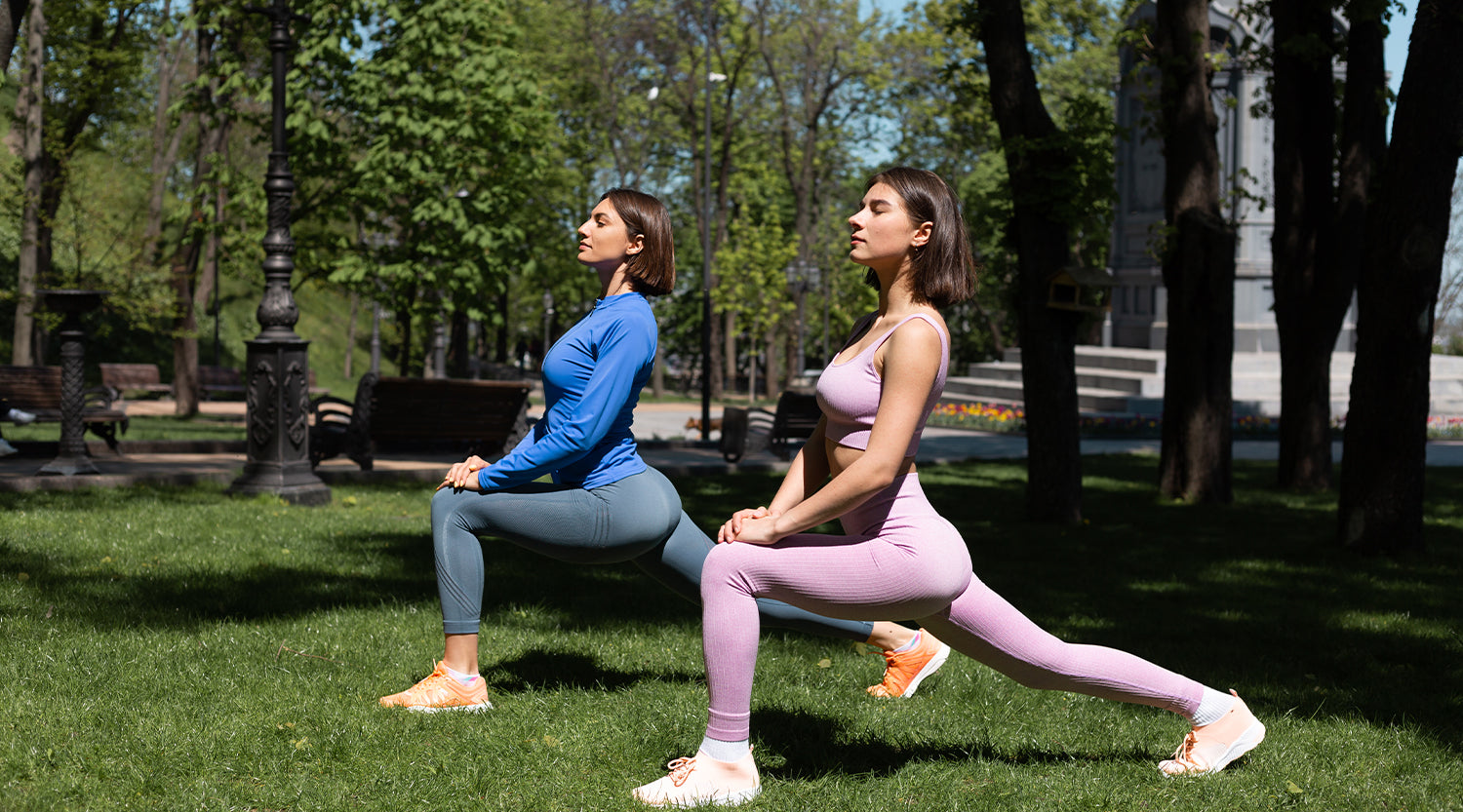Walking is not only an enjoyable and accessible form of physical activity but also offers a multitude of remarkable benefits for the elderly. As we age, staying physically active becomes increasingly important for maintaining overall health and well-being.
In this article, we will explore the importance of physical activity in old age, the specific physical and mental health benefits of walking for seniors, the social advantages it brings, and how to incorporate walking into daily routines. We will also address common barriers that may hinder seniors from walking regularly.
Summary
-
Walking is a low-impact, accessible form of physical activity ideal for seniors, promoting cardiovascular health, weight management, and muscle strength.
-
Regular walking for the elderly enhances mental well-being by reducing stress and anxiety, boosting mood, and improving cognitive function.
-
Walking offers significant social benefits, providing opportunities for seniors to connect with others, combat loneliness, and engage with their communities.
-
Walking offers flexibility in terms of pace, duration, and setting, making it an enjoyable activity that seniors can adapt to their personal health conditions and preferences.
Understanding the Importance of Physical Activity in Old Age
As we grow older, engaging in regular physical activity becomes crucial for maintaining physical and mental well-being. Exercise not only helps to prevent chronic conditions but also contributes to a higher quality of life. The great news is that walking, a low-impact exercise, can easily be incorporated into daily routines.
The Role of Walking in Maintaining Physical Health
Walking is an excellent activity for seniors as it helps to maintain cardiovascular health by reducing the risk of heart disease, stroke, and high blood pressure. Regular walking also aids in weight management, improves circulation, and strengthens the immune system.
The Impact of Regular Exercise on Mental Well-being
Engaging in physical exercise, including walking, has been proven to have positive effects on mental health. It stimulates the release of endorphins, which trigger feelings of happiness and reduce stress and anxiety. Walking outdoors can also promote a sense of calm and relaxation, contributing to improved overall well-being.
Moreover, walking provides an opportunity for social interaction and connection. Seniors who engage in regular walks often find themselves meeting new people and forming friendships along the way. This social aspect of walking not only helps combat feelings of loneliness but also enhances overall mental well-being.
In addition to the physical and social benefits, walking in nature can have a profound impact on our mental state. Research has shown that spending time in green spaces, such as parks or forests, can reduce symptoms of depression and improve cognitive function. The combination of physical activity and exposure to nature creates a powerful synergy that uplifts the spirit and revitalizes the mind.
The Physical Health Benefits of Walking for Seniors
Walking is a low-impact exercise that offers a range of benefits specifically tailored to seniors' needs. Let's explore the physical health advantages that walking brings.
Enhancing Cardiovascular Health
Walking is a great way to improve heart health and increase cardiovascular fitness. It helps to lower cholesterol levels, reduce the risk of heart disease, and improve overall circulation. Regular walking also helps to regulate blood pressure and maintain a healthy heart.
Strengthening Muscles and Bones
Walking is a weight-bearing exercise, which means it puts pressure on the bones, stimulating the body to build stronger and denser bones. This is particularly important for seniors as it helps to prevent conditions such as osteoporosis and reduces the risk of fractures. Walking also helps to strengthen muscles, improving overall mobility and balance.
Improving Balance and Coordination
Walking requires coordination and balance, which makes it an effective way to improve these skills. Regular walking helps to reduce the risk of falls and aids in maintaining independence by enhancing overall stability and agility.
But the benefits of walking for seniors go beyond just physical health. Walking also has a positive impact on mental well-being. When seniors engage in regular walking, it can help reduce symptoms of anxiety and depression, boost mood, and improve overall cognitive function.
Additionally, walking provides an opportunity for social interaction. Seniors can join walking groups or walk with friends, which not only promotes physical activity but also creates a sense of community and support. This social aspect of walking can help combat feelings of loneliness and isolation, which are common among older adults.
Furthermore, walking in nature has been shown to have additional benefits for seniors. Spending time outdoors, surrounded by greenery and fresh air, can have a calming effect on the mind and reduce stress levels. It also provides an opportunity to connect with nature and appreciate the beauty of the natural world.
The Mental Health Advantages of Regular Walking
In addition to the physical benefits, walking has a profound positive impact on mental well-being for seniors. Let's take a closer look at the mental health advantages of regular walking.
Boosting Mood and Reducing Stress
Walking releases endorphins in the body, often referred to as "feel-good" hormones. These endorphins help to reduce feelings of stress, anxiety, and depression while promoting a more positive mood. Walking outdoors in nature further enhances these benefits by providing a sense of tranquility and connection to the natural world.
Imagine strolling through a serene park, surrounded by lush greenery and the soothing sounds of birds chirping. As you take each step, your body releases endorphins, creating a wave of relaxation and contentment. The gentle breeze brushes against your skin, carrying away any worries or tension that may have been weighing you down. With each breath of fresh air, you feel a renewed sense of calm and clarity, as if the weight of the world has been lifted off your shoulders.
Enhancing Memory and Cognitive Function
Walking has been shown to improve memory and cognitive function in older adults. Studies have found that regular walking is associated with a reduced risk of cognitive decline and can enhance brain health. It stimulates blood flow to the brain, promoting the growth of new neurons and improving overall cognitive abilities.
Picture yourself walking briskly along a scenic path, surrounded by vibrant colors and a gentle breeze. As you move, your brain is also in motion, benefiting from the increased blood flow and oxygen supply. This surge of nourishment fuels your brain cells, enhancing their communication and strengthening your memory. With each step, you feel your mind becoming sharper and more focused, as if a mental fog is being lifted.
Promoting Better Sleep
Regular walking can contribute to better sleep quality for seniors. Engaging in physical activity during the day helps to regulate sleep patterns, making it easier to fall asleep and enjoy a restful night's sleep. Walking outdoors in natural light also helps to regulate the body's internal clock, further promoting healthy sleep-wake cycles.
Imagine taking an evening stroll as the sun begins to set, casting a warm glow over the world. As you walk, your body absorbs the natural light, signaling to your internal clock that it's time to wind down. The rhythmic movement of your feet on the pavement calms your mind and relaxes your muscles, preparing you for a peaceful slumber. As you lay in bed, you drift off effortlessly, knowing that the day's physical activity has set the stage for a rejuvenating night's rest.
Social Benefits of Walking for the Elderly
Walking not only benefits physical and mental health but also provides opportunities for social interaction and community engagement.
As we age, maintaining social connections becomes increasingly important for our overall well-being. Walking can play a significant role in encouraging social interaction among the elderly. Joining walking groups or simply walking with friends and family can not only make the activity more enjoyable but also provide valuable opportunities for meaningful conversations and companionship. Engaging in conversations while walking helps to combat feelings of loneliness and isolation that can often affect seniors.
In addition to fostering social interaction, walking also presents unique opportunities for community engagement. When seniors walk in their neighborhood or local parks, they become more connected to their surroundings and the people within their community. They may meet and interact with other walkers, exchanging friendly greetings and sharing stories. This sense of connection can foster a deep sense of belonging and connectedness within their community.
Moreover, walking can also serve as a gateway to discovering local events and activities. As seniors explore their surroundings on foot, they may stumble upon flyers or announcements for community gatherings, clubs, or cultural events. This newfound awareness can open doors to exciting opportunities for participation, such as joining a local book club, attending a neighborhood festival, or even volunteering for a community project. By engaging with their community in this way, seniors can not only enrich their own lives but also contribute to the vibrancy and cohesion of the community as a whole.
How to Incorporate Walking into Your Daily Routine
Now that we understand the incredible benefits of walking, let's explore some practical ways to incorporate it into your daily routine.
Walking is not just a form of exercise; it's a way to connect with nature and find peace amidst the chaos of everyday life. By adding a few extra paragraphs, we can delve deeper into the art of walking and discover more ways to make it a fulfilling part of your routine.
Setting Realistic Goals
Start by setting realistic goals for yourself. Begin with short walks and gradually increase the duration or distance over time. Setting achievable goals will help to maintain motivation and ensure a sustainable routine.
But let's not forget the joy of exploring new places on foot. Set goals that involve discovering hidden gems in your neighborhood or venturing into uncharted territories. By challenging yourself to explore new paths, you'll not only reap the physical benefits of walking but also expand your horizons and discover the beauty that lies just around the corner.
Choosing the Right Environment for Walking
Ambiance plays a vital role in enjoying the walking experience. Choose environments that you find appealing, whether it's walking in a local park, along the beach, or in a scenic nature reserve. Being surrounded by nature adds an extra layer of tranquility and relaxation to your walking routine.
But what if you live in a bustling city with limited access to green spaces? Fear not, for urban landscapes offer their own unique charm. Explore the vibrant streets, immerse yourself in the rhythm of the city, and let the sights and sounds become your walking companions. Every corner holds a story waiting to be discovered, and every step can be an opportunity for urban exploration.
Walking Safely: Tips and Precautions
Ensure your safety while walking by following some necessary precautions. Wear comfortable and supportive shoes, dress appropriately for the weather, use sun protection, and stay hydrated. It's also advisable to walk during daylight hours or in well-lit areas and be mindful of your surroundings.
However, safety doesn't have to mean monotony. Embrace the spirit of adventure by joining walking groups or organizing walking challenges with friends. Discover new routes together, share stories, and create lasting memories. Walking can be a social activity that not only keeps you fit but also strengthens bonds and fosters a sense of community.
Overcoming Common Barriers to Walking in Old Age
Despite the remarkable benefits of walking, there can be barriers that hinder seniors from engaging in regular walking routines. Let's discuss some common barriers and how to overcome them.
Dealing with Health Concerns
Health concerns such as chronic conditions or physical limitations can make walking challenging. It's essential to consult with a healthcare professional before starting a new exercise routine to ensure it is suitable for your circumstances. They can provide guidance on adapting your walking routine to accommodate any existing health conditions.
For example, if you have arthritis, your healthcare professional may recommend wearing supportive shoes or using walking poles to reduce joint stress. They may also suggest incorporating gentle stretching exercises before and after your walks to improve flexibility and prevent muscle strain.
Addressing Fear of Falling
Fear of falling is a common concern for seniors and can discourage them from engaging in physical activity, including walking. To address this fear, consider using walking aids or assistive devices, walking with a companion, or participating in balance and strength training exercises to improve stability.
Balance and strength training exercises, such as yoga or tai chi, can help improve your overall balance and coordination, reducing the risk of falls. Additionally, walking with a companion can provide a sense of security and support, making you feel more confident and less anxious about falling.
Combating Lack of Motivation
Lack of motivation can be a significant barrier to regular walking. To overcome this, find ways to make your walking routine more enjoyable. Listen to music, audiobooks, or podcasts while walking, vary your routes to explore new surroundings, or join a local walking group to meet new people and share experiences.
Another way to stay motivated is by setting goals and tracking your progress. Start with small, achievable goals and gradually increase the duration or intensity of your walks. Celebrate your accomplishments along the way, whether it's reaching a certain distance or completing a specific number of steps. Rewarding yourself can help maintain your motivation and make walking a more fulfilling activity.
The benefits of walking for the elderly are truly remarkable. Engaging in regular walking not only enhances physical health but also improves mental well-being and provides social opportunities. By incorporating walking into daily routines, seniors can experience the numerous advantages it offers. Don't let barriers hold you back—take the first step and start your walking journey to a healthier and happier life.




